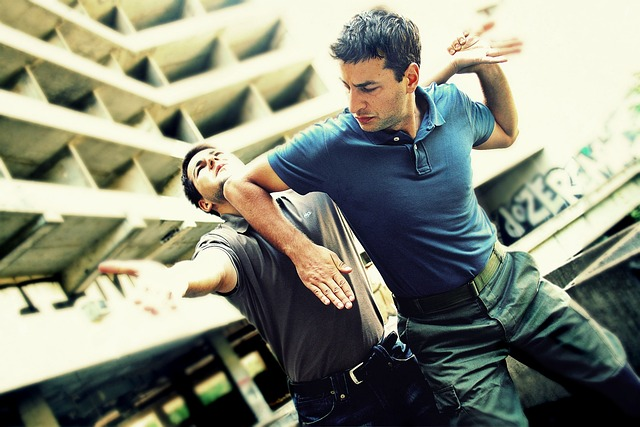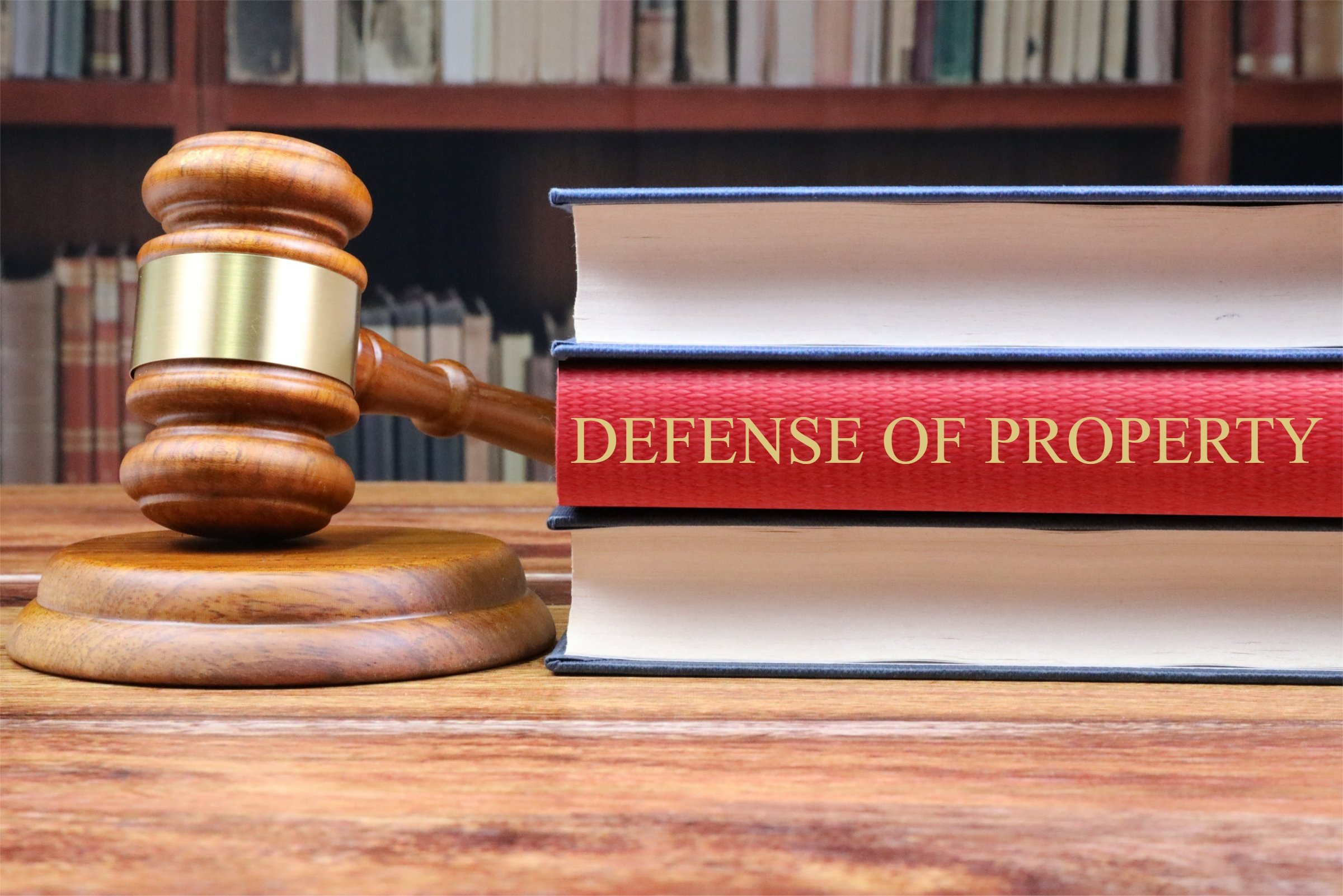Facing assault and battery charges can be daunting. Understanding self-defense and other legal defenses in assault and battery cases is essential for protecting your rights. This article covers various defenses, providing clarity on possible legal strategies.
Key Takeaways
- Self-defense, defense of others, and defense of property are key legal defenses in assault and battery cases, each requiring reasonable and proportional actions in response to threats.
- Intent, or a lack thereof, plays a crucial role in defending against assault and battery charges, emphasizing the importance of demonstrating the absence of deliberate or reckless harm.
- The expertise of an experienced criminal defense attorney is essential in navigating the complexities of assault and battery defenses, ensuring proper application of defenses like consent, necessity, and mistaken identity to secure the best possible outcome.
Introduction
In the dance of criminal law, the steps are intricate, and missteps can lead to dire consequences. Assault, the ominous shadow of a threat, and battery, its tangible strike, are two distinct yet often intertwined partners in this grim ballet. Each move and countermove within the courtroom can alter the outcome dramatically, and it is here that the defenses to assault and battery reveal their critical importance. Some of the defenses to assault and battery include:
- Self-defense
- Consent
- Defense of others
- Defense of property
- Lack of intent
- Mistaken identity
Understanding common defenses is paramount in navigating the complexities of assault and battery cases.
This discourse will unravel these complex defenses, highlighting their nuances and the indispensable role of an adept criminal defense attorney in leveraging them to your advantage.
Understanding Assault and Battery
The concepts of assault and battery, though frequently mentioned in tandem, are distinct entities within the realm of criminal law. Assault casts a shadow of menace, the threat of harm that needles its way into the psyche, while battery is the unwelcome physical contact that violates personal space, leaving its mark on flesh and bone. Navigating an assault and battery charge is akin to traversing a minefield; one wrong step can escalate a situation, transforming self defense into unlawful force, a protective gesture into an alleged assault. It’s a world where self defense laws scrutinize every action for evidence of bodily harm or intent, and the line between defendant and victim can blur in the blink of an eye.
The gravity of an assault and battery charge cannot be understated, for its repercussions ripple outwards, potentially staining one’s future with difficulty in securing employment, housing, or financial aid. It behooves anyone entangled in such charges to understand the defenses at their disposal. Acting in self defense, defending others, protecting one’s home—these are but a few of the shields the law provides to those who wield them with the precision of truth and the backing of an experienced criminal defense attorney.
Self-Defense as a Legal Defense

Self-defense emerges as a stalwart shield in the arsenal of legal defenses, its legitimacy rooted in the primal instinct to survive. When the dark cloud of an assault looms, the law recognizes the right to raise one’s arms, not in aggression, but in a necessary and proportional response to avert harm. The sanctity of life and the preservation of safety are principles enshrined within criminal law, allowing for force to defend oneself when faced with the imminent threat of serious bodily injury or death, provided one has not willingly entered the fray of criminal activity and stands rightfully upon that hallowed ground of conflict.
Yet, one must tread carefully, for self defense laws demand that the response be reasonable—a subjective gauge set by a hypothetical reasonable person, considering factors like the disparity in strength, the immediacy of the threat, and the absence of a safe retreat. To claim self defense, one must prove that fear clawed at their heart with such ferocity that action was the only recourse, and the force used was not a drop more than necessary.
Here, the line between justified defense and excessive force is fine, often requiring the keen eye of an experienced criminal defense attorney to navigate and validate one’s actions under the scrutiny of the court.
Defense of Others

Stemming from the same root as self-defense, the defense of others is a legal doctrine that allows one to extend their protective reach to the vulnerable in the face of danger. It is the arm that shields a stranger or loved one from the strike of an attacker, invoking the right to use reasonable force when a tangible threat to another person’s safety arises. This defense is not wielded lightly; it necessitates the presence of an immediate and proportionate danger, and one must have witnessed the attack unfold to justify stepping into the fray—a testament to the gravity of taking such action.
The person shielded by this defense must themselves have a legitimate self-defense claim, and the force used must mirror what any reasonable person would consider necessary under the circumstances. It is an affirmative defense that echoes the principles of self-defense, with the added moral weight of defending the defenseless. An experienced criminal defense attorney becomes a crucial ally in these cases, adept at demonstrating the necessity of the defender’s actions and ensuring that the use of force is recognized as a valid defense under the law.
Defense of Property

The sanctity of one’s dominion is a concept as old as time, and the defense of property stands as a testament to this enduring principle. When an individual’s personal property comes under the shadow of unlawful interference, the law provides a bastion in the form of reasonable force. The property owner, confronted with imminent trespass or theft, is permitted to stand their ground, exerting no more force than what is deemed necessary to repel the intrusion.
This defense, however, is not a carte blanche for vengeance; it is bound by the principle of proportionality. The force must be tailored to the immediacy of the threat—non-lethal unless a life hangs in the balance, and measured if the property is already beyond reclaim. The nuances of this defense can be as intricate as the law itself, making the guidance of an experienced criminal defense attorney invaluable. They are the ones who can artfully argue the fine line between defense and excess, ensuring the protection of one’s property does not lead to their prosecution, especially when it comes to the use of deadly force.
Duress as a Defense
In the shadowed corners of the human experience, there are moments when individuals are driven to act against their will, under the severe pressure of duress. This defense emerges from the dark reality that sometimes a person may be compelled to attack another, not out of malice, but because the specter of greater harm looms over them—an immediate threat that leaves no room for escape or alternative. Duress acknowledges the turmoil of being caught between the anvil of coercion and the hammer of the law, recognizing the desperate actions taken in such dire straits.
However, the boundaries of duress are rigid; one cannot claim this defense if they had a reasonable chance to sidestep the situation that led to the criminal act. The threat must be imminent and unrelenting, and the fear of its fulfillment must be well-grounded. It is not a defense taken lightly by the courts, and its validity is often difficult to prove, particularly when the crime in question carries a heavy weight, such as murder. Here, the expertise of a criminal defense attorney is indispensable, navigating the complexities of the law to demonstrate the palpable fear and lack of choice that characterizes true duress in the face of imminent danger.
Necessity Defense
When faced with the stark choice between lesser evils, the necessity defense emerges as a legal rationale for actions taken in extreme circumstances. This defense argues that the transgression was a necessary evil, a lesser sin committed to ward off a greater threat or danger. It is the hand forced to act, not in self interest, but in the interest of preventing a more perilous outcome, be it harm to oneself or others.
The necessity defense carries with it the burden of proving that the unlawful act was the only way to avert the greater harm, a task that requires a meticulous presentation of evidence and circumstances. It is a defense that must be carefully calibrated to the situation, each element scrutinized to ensure that the claim is justified. In these complex situations, the role of an experienced criminal defense attorney becomes pivotal, adept at weaving together the strands of necessity into a compelling narrative that resonates with the principles of justice.
Consent as a Defense
The tapestry of legal defenses is rich with nuances, and the thread of consent weaves a particularly intricate pattern. Consent, in the eyes of the law, can transform an act from criminal to permissible, provided the alleged victim has given their informed and explicit agreement to the conduct in question. It is the nod of approval that precedes the contact sport, the handshake that initiates the sparring match—a clear signal that the parties involved understand and accept the risks at hand.
Yet the validity of consent as a defense is not without its limits. The consent given must align with what a reasonable person would expect, and it must come from someone of sound mind and legal age. Stretch the boundaries of consent, and the defense can quickly unravel, leaving the accused exposed to the full brunt of an assault or battery charge. It is a delicate balance, one that requires the discerning eye of a criminal defense attorney to navigate, ensuring that the consent provided is not only explicit but also falls within the acceptable confines of the law.
Lack of Intent
Intent, or rather the absence of it, plays a pivotal role in the theater of legal defenses. The lack of intent defense pivots on the assertion that the accused did not harbor the mental state to commit the offense—that the harm caused was not borne of a deliberate or reckless disregard for safety. This defense does not deny the act but refutes the malice behind it, drawing a line between a calculated strike and an unfortunate misstep that resulted in harm.
Absent intent, the charge often shifts from the gravity of an intentional tort to the lesser weight of negligence. This distinction is critical, as it can mean the difference between a stain on one’s record and a clean slate. It is an argument that hinges on the mental state of the accused at the time of the incident, a complex narrative that benefits from the astute legal acumen of a seasoned defense attorney, who can articulate the absence of malice and intent with the nuance the defense demands.
Mistaken Identity
The stroke of misfortune that is mistaken identity can ensnare the innocent in the web of criminal proceedings, where a simple case of being in the wrong place at the wrong time can lead to an alleged assault charge. The defense of mistaken identity stands as the beacon of truth against such wrongful accusations, asserting that the person facing the charges is not the true perpetrator. It is a claim that rests heavily on the evidence and alibis presented, each piece a thread pulling away from the tapestry of falsehoods woven around the accused.
To dismantle the prosecution’s narrative and affirm innocence, the defendant must offer a compelling alternative story, supported by credible evidence that places them elsewhere or otherwise proves their non-involvement. It is a defense that hinges on precision and detail, qualities that an experienced criminal defense attorney brings to the table, skillfully crafting a case that illuminates the truth and clears their client’s name.
Role of an Experienced Criminal Defense Attorney
In the complex ballet of the courtroom, where each step and gesture carries weight, the role of an experienced criminal defense attorney is akin to that of a master choreographer. Attorneys like Darren Levitt enter the fray armed with knowledge and strategy, guiding their clients through the intricate legal process with precision and foresight. Their expertise is the compass that navigates the murky waters of criminal law, ensuring that the defenses available are tailored to the unique circumstances of each case.
An attorney’s arsenal is vast, including:
- negotiating plea deals that may reduce charges or penalties
- advocating fiercely in court, challenging the prosecution’s case, and ensuring a fair trial
- utilizing local knowledge and court familiarity to enhance defense strategy
Seasoned attorneys like Darren Levitt possess the experience and expertise to provide a tailored defense strategy designed to secure the best possible outcome for their clients.
Levitt Legal’s Criminal Defense Process
Levitt Legal’s approach to criminal defense is methodical and meticulous, a process honed through years of experience in the legal trenches. The journey begins with a comprehensive briefing, where clients are acquainted with the charges they face and the nuances of the Utah criminal court system—a vital step in demystifying the legal journey ahead. Following this, a thorough case assessment takes place, considering every facet of the client’s situation to explore all possible legal options, a crucial phase that sets the stage for building a robust defense.
The construction of the defense is where Darren Levitt’s expertise truly shines, strategically piecing together each element to either dismiss or mitigate the charges. The ultimate goal is clear: to achieve the best possible results, defending clients with unwavering integrity and determination throughout the case. Levitt Legal’s process is not just a means to an end but a journey undertaken with the client, ensuring that every step is taken with the client’s best interests at heart.
Summary
The defenses outlined in this discourse—self-defense, defense of others, defense of property, duress, necessity, consent, lack of intent, and mistaken identity—represent the multifaceted strategies available to those facing assault and battery charges. Each defense is a thread in the tapestry of criminal law, woven together by the skilled hands of a defense attorney to create a picture of innocence or reduce the severity of the charges. The role of an attorney like Darren Levitt is not only to understand these defenses but to apply them with the finesse required to navigate the complexities of each unique case.
As the curtain falls on this exploration of legal defenses, let the knowledge imparted here be a guiding light. Should you or someone you know ever find themselves in the maelstrom of an assault and battery case, remember the importance of having a seasoned criminal defense attorney at your side. It is their expertise that will illuminate the path through the legal darkness, their advocacy that will serve as your shield, and their strategy that may ultimately lead to your exoneration.
Frequently Asked Questions
Can I claim self-defense if I was not physically attacked first?
Yes, you can claim self-defense if you reasonably believed there was imminent harm, regardless of whether you were physically attacked first. The essential consideration is whether the use of force was necessary and proportional to the perceived threat.
Is it legal to use force to protect someone else who is being attacked?
Yes, it is legal to use reasonable force to protect someone who is in imminent danger, similar to self-defense, but the force used must be proportional to the threat.
What constitutes as reasonable force when defending my property?
Reasonable force when defending your property must be proportionate to the threat and generally does not include lethal force unless there is a threat to a person. Be mindful of this when considering how to protect your belongings.
Can mental state affect criminal liability in assault and battery cases?
Yes, the mental state of the accused can be a valid defense in assault and battery cases if it reflects a lack of intent to commit the crime.
What should I do if I’m charged with assault but it’s a case of mistaken identity?
You should gather evidence and alibis to support your claim of mistaken identity and seek the help of an experienced criminal defense attorney to present this evidence effectively.
